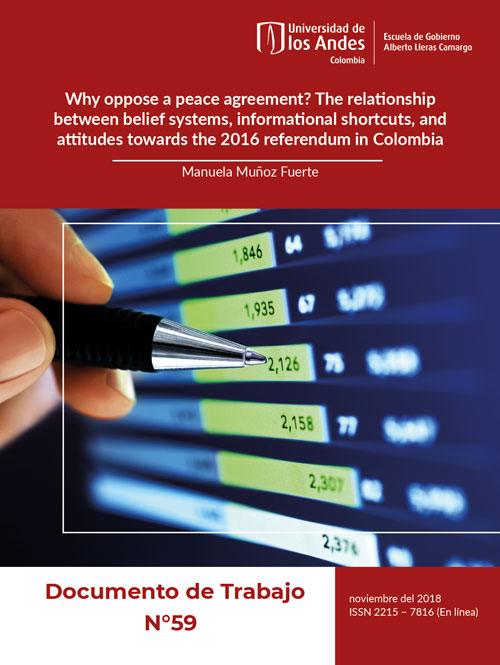Why oppose a peace agreement? The relationship between belief systems, informational shortcuts, and attitudes towards the 2016 referendum in Colombia
On 2 October 2016, the proposed peace agreement between the Colombian government and the Revolutionary Armed Forces of Colombia (Fuerzas Armadas Revolucionarias de Colombia, or FARC) was narrowly defeated in a plebiscite that sought public approval for the deal. The “no” option received 50.2 percent of votes cast, and less than 38 percent of the electorate cast a vote. Why did the majority of voters oppose the peace agreement? In a combined survey ‒a face-to-face sample in Bogotá and an online sample‒ conducted prior to the referendum, we identify voter cleavages using the principal component analysis (PCA) method. We find three consistent dimensions with profiles reflecting whether an individual is a 1) pro-status quo citizen; 2) a conservative-right voter; and 3) a citizen with a pronounced religious identity. In addition, we not only assess voters’ choices in the plebiscite based on these profiles, but also examine how these profiles may predict voters’ opinions on specific aspects of, and beliefs about, the agreement. Similar results are found when we replicate the PCA exercise using data from the 2016 Latin American Public Opinion Project (LAPOP) survey. Our findings suggest that voters are heterogeneous, but that different beliefs and attitudes about the referendum clustered in specific type of voters, which in turn shaped these voters’ willingness to endorse the proposed agreement.
Autor: Manuela Muñoz Fuerte

